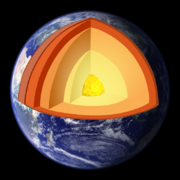Difference between revisions of "Material/Twenty most abundant elements in Earth's crust"
From AdCiv
< Material
| (One intermediate revision by one other user not shown) | |||
| Line 49: | Line 49: | ||
Notable missing from top 20: | Notable missing from top 20: | ||
| − | {{wp4|Copper}}.<br><small>Carbon might replace copper for many electrical (and thermal) conduction applications - see [http://www.unidym.com/technology/cnt_property_electrical.html], [http://www.scienceblog.com/cms/ub-engineers-prove-carbon-nanotubes-are-superior-metals-electronics-19679.html] and {{wp|Carbon_nanotube|carbon nanotube}} for further information</small> | + | {{wp4|Copper}}.<br><small>Carbon might replace copper for many electrical (and thermal) conduction applications - see [http://www.unidym.com/technology/cnt_property_electrical.html], [http://www.scienceblog.com/cms/ub-engineers-prove-carbon-nanotubes-are-superior-metals-electronics-19679.html] and {{wp|Carbon_nanotube|carbon nanotube}} for further information. In September 2013, a proof-of-concept computer was built from carbon nanotubes [http://www.kurzweilai.net/a-first-stanford-engineers-build-basic-computer-using-carbon-nanotubes]</small> |
| Line 55: | Line 55: | ||
''Figures rounded to two decimal places''<br> | ''Figures rounded to two decimal places''<br> | ||
''Also need to have a list based on ease of extraction and energy required''<br> | ''Also need to have a list based on ease of extraction and energy required''<br> | ||
| − | ''Element links in list point to Wikipedia article''</font> | + | ''Element links in list point to element's Wikipedia article''</font> |
Latest revision as of 20:42, 29 September 2013
Approx figures for the 20 most abundant elements in Earth's crust:
| Element | % mass |
|---|---|
| Oxygen | 46.71 |
| Silicon | 27.69 |
| Aluminum | 8.07 |
| Iron | 5.05 |
| Calcium | 3.65 |
| Sodium | 2.75 |
| Potassium | 2.58 |
| Magnesium | 2.08 |
| Titanium | 0.62 |
| Hydrogen | 0.14 |
| Phosphorus | 0.13 |
| Carbon | 0.09 |
| Manganese | 0.09 |
| Sulfur | 0.05 |
| Barium | 0.05 |
| Chlorine | 0.05 |
| Chromium | 0.04 |
| Fluorine | 0.03 |
| Zirconium | 0.03 |
| Nickel | 0.02 |
Notable missing from top 20:
Copper.
Carbon might replace copper for many electrical (and thermal) conduction applications - see [1], [2] and carbon nanotube  for further information. In September 2013, a proof-of-concept computer was built from carbon nanotubes [3]
for further information. In September 2013, a proof-of-concept computer was built from carbon nanotubes [3]
Figures from [4]
Figures rounded to two decimal places
Also need to have a list based on ease of extraction and energy required
Element links in list point to element's Wikipedia article

